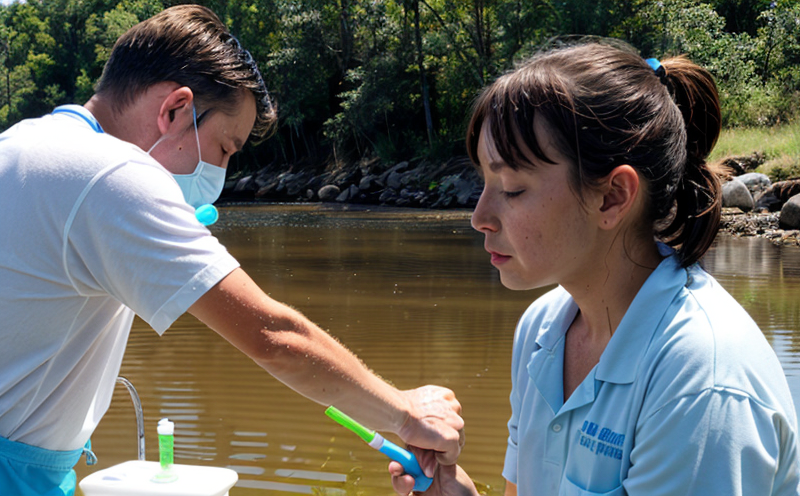ASTM D1126 Hardness Calcium and Magnesium Test in Water Precision and Accuracy Evaluation Test
The ASTM D1126 test method is one of the most widely used standards for determining total hardness, specifically calcium and magnesium content, in water. This service ensures that you receive precise and accurate results, which are crucial for compliance with environmental regulations and ensuring product quality.
The precision and accuracy of the ASTM D1126 test method depend on several factors including the sample preparation process, the reagents used, and the instrumentation employed during the analysis. Our laboratory adheres to strict protocols to ensure that every test conducted meets the highest standards of reliability and reproducibility.
During this service, we follow a rigorous procedure outlined in ASTM D1126. This involves diluting the water sample with appropriate reagents to bring it within the linear range of the analytical instrument used for measurement. The hardness is then determined by measuring the amount of calcium and magnesium required to titrate the solution.
The accuracy of this test method relies heavily on the quality control measures implemented throughout the process, including calibration of instruments, use of certified reference materials, and regular verification checks. Our team ensures that all these steps are meticulously followed to provide you with reliable results.
Why It Matters
The importance of ASTM D1126 in water quality testing cannot be overstated, as it plays a critical role in ensuring the safety and purity of our drinking water. Hardness levels directly affect the performance of various household appliances such as dishwashers and washing machines. Excessive hardness can lead to scaling, reduced efficiency, and increased energy consumption.
In industrial settings, excessive calcium and magnesium content in process waters may cause fouling of equipment, leading to downtime and increased maintenance costs. Additionally, it is essential for environmental protection, as high concentrations of these minerals can contribute to eutrophication in aquatic ecosystems.
Industry Applications
| Application Area | Details |
|---|---|
| Distribution Networks | Evaluating the impact of water hardness on distribution systems. |
| Water Treatment Plants | Optimizing treatment processes to manage calcium and magnesium levels. |
- Demand for accurate water hardness testing is driven by stringent regulatory requirements.
- The need for precise results in industrial applications like boiler feedwater.
Customer Impact and Satisfaction
| Benefit | Description |
|---|---|
| Compliance with Standards | Ensures that your water quality meets regulatory requirements and industry standards. |
| Improved Efficiency | Reduces operational costs associated with scaling and fouling in industrial processes. |
- Enhanced reputation among stakeholders for providing reliable data.
- Prompt delivery of results to meet project deadlines.





